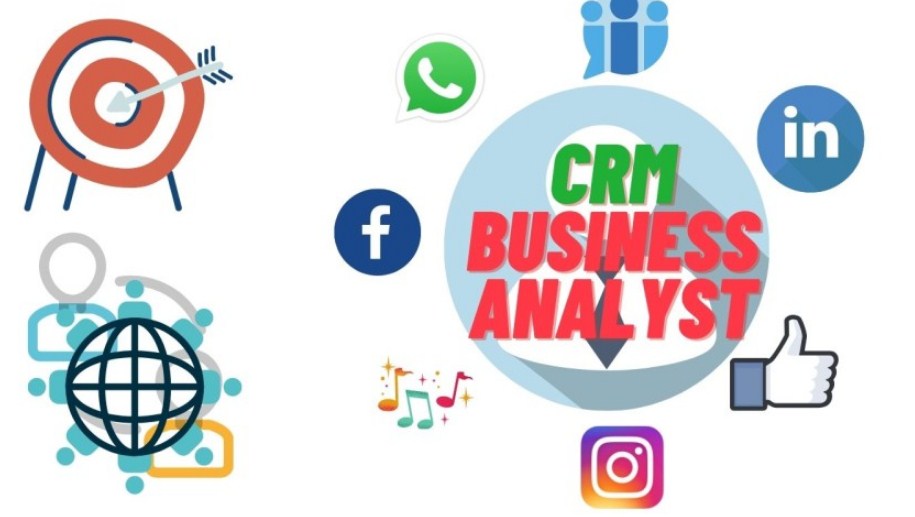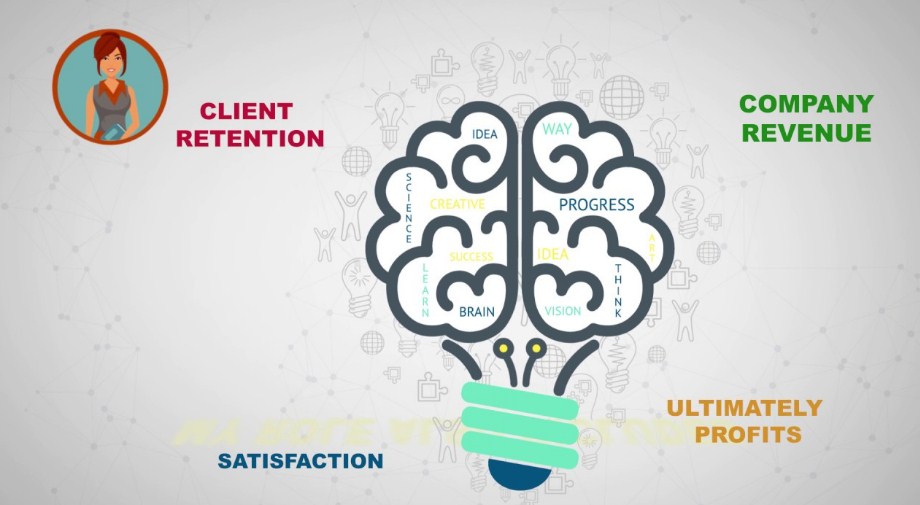CRM Business Analyst – CRM (Customer Relationship Management) is a vital component of modern business strategy. It helps businesses to manage interactions with customers, streamline processes, and enhance customer satisfaction. The role of a CRM Business Analyst is central to ensuring that a business selects, implements, and optimizes CRM systems effectively. In this article, we will explore what a CRM Business Analyst does, the benefits of using CRM software, and the top tools available in the market. By the end of this article, you’ll know exactly how to choose the best CRM solution to transform your business.

What is a CRM Business Analyst?
A CRM Business Analyst is responsible for evaluating, implementing, and optimizing CRM software solutions within an organization. They analyze business needs and ensure that the CRM system aligns with those needs, improving customer engagement, sales, and overall customer experience. The role combines business analysis with technical expertise, focusing on CRM software to enhance customer relationship management.
Some of the key responsibilities of a CRM Business Analyst include:
- Identifying business requirements for CRM implementation
- Analyzing data and using insights to drive decisions
- Customizing CRM tools to meet business objectives
- Training and supporting users on CRM software
- Conducting post-implementation reviews to ensure system success
Benefits of Being a CRM Business Analyst
As a CRM Business Analyst, you bring immense value to any business by improving efficiency, enhancing customer service, and optimizing business operations. The key benefits of using a CRM system include:
1. Improved Customer Insights
A CRM system collects valuable data on customer behaviors, preferences, and interactions, providing deep insights. With this data, businesses can offer personalized services and identify opportunities to enhance customer satisfaction. 😍
2. Enhanced Communication and Collaboration
A CRM platform enables seamless communication between teams, ensuring that everyone has access to the same customer information. This leads to improved collaboration and better customer service. 🤝
3. Increased Sales Productivity
CRM tools streamline sales processes, automate repetitive tasks, and provide analytics to help sales teams close deals more efficiently. By tracking and managing leads, businesses can increase conversions and improve ROI. 💰
4. Data-Driven Decision Making
By using the data stored within a CRM system, businesses can make smarter decisions. This includes identifying the most profitable customers, monitoring sales pipelines, and analyzing customer feedback for continuous improvement. 📊
5. Time and Cost Efficiency
With CRM systems in place, time-consuming tasks like manual data entry are automated. This saves time, reduces errors, and lowers operational costs, allowing employees to focus on value-added tasks. ⏳
Top CRM Tools for Business Analysts
Now that we understand the importance of CRM Business Analysts, let’s take a closer look at some of the best CRM tools available for business analysts. Each of these tools provides different features and functionality suited to various types of businesses.

1. HubSpot CRM
Use Case: HubSpot CRM is ideal for small to medium-sized businesses looking for an easy-to-use CRM system.
- Pros:
- Free tier available
- Excellent marketing automation tools
- Great reporting features
- Cons:
- Limited customization for advanced users
- Pricing can increase with additional features
- Price: Free; paid plans start at $50/month
- Features:
- Contact management
- Email tracking
- Lead management
- Marketing automation
- Customizable dashboards
2. Salesforce
Use Case: Salesforce is best for large enterprises that require highly customizable CRM solutions.
- Pros:
- Extensive integration options
- Powerful analytics and reporting
- Highly scalable
- Cons:
- Expensive for small businesses
- Steep learning curve
- Price: Starting at $25/user/month
- Features:
- Sales Cloud
- Service Cloud
- Marketing Cloud
- AI-powered analytics
- Custom apps and workflows
3. Zoho CRM
Use Case: Zoho CRM is suitable for businesses of all sizes and industries, offering a good balance of affordability and functionality.
- Pros:
- Affordable
- Great automation features
- Mobile app available
- Cons:
- Limited support options
- Some features are hard to master
- Price: Starts at $12/user/month
- Features:
- Sales automation
- Lead management
- AI-powered assistant
- Integration with third-party tools
4. Microsoft Dynamics 365
Use Case: Best for enterprises that already use Microsoft products and need a highly integrated CRM solution.
- Pros:
- Seamless integration with Microsoft tools
- AI-driven insights
- Highly customizable
- Cons:
- Expensive
- Complexity can be overwhelming for small teams
- Price: Starting at $65/user/month
- Features:
- Sales and customer service management
- AI-driven data analysis
- Marketing automation
- Integration with other Microsoft tools
5. Pipedrive
Use Case: Pipedrive is ideal for sales-focused teams looking to track leads and sales pipelines.
- Pros:
- User-friendly interface
- Excellent sales pipeline management
- Affordable pricing
- Cons:
- Limited marketing features
- No built-in email automation
- Price: Starts at $14.90/user/month
- Features:
- Visual sales pipeline
- Email tracking
- Sales reporting
- Activity reminders
How CRM Business Analysts Benefit from These Tools
CRM tools are essential for business analysts in several ways:
- Customization: Business analysts can tailor CRM solutions to fit specific business needs, making them more effective.
- Automation: CRM systems like HubSpot and Zoho allow business analysts to automate processes, reducing time and effort spent on manual tasks.
- Data Insights: Tools like Salesforce provide rich analytics, allowing business analysts to derive valuable insights from customer data, driving better business strategies.
Use Cases and Problem-Solving with CRM Software
CRM systems address numerous challenges faced by businesses:
- Customer Data Organization: CRM tools help businesses organize and centralize customer data, making it easier for teams to access and use.
- Improved Customer Service: By tracking customer interactions, CRM systems ensure better customer support, resolving issues quickly and efficiently.
- Lead Management: CRM systems automate lead capture and follow-up, ensuring no potential customer falls through the cracks.
Where to Buy CRM Software and How Much It Costs
You can purchase CRM software directly from the vendors’ websites:
- HubSpot CRM: Free to start, with paid plans beginning at $50/month. Visit HubSpot CRM
- Salesforce: Starting at $25/month for basic features. Visit Salesforce
- Zoho CRM: Starting at $12/month. Visit Zoho CRM
- Microsoft Dynamics 365: Starting at $65/month. Visit Microsoft Dynamics 365
- Pipedrive: Starting at $14.90/month. Visit Pipedrive
FAQs
1. What is the role of a CRM Business Analyst?
A CRM Business Analyst evaluates, implements, and optimizes CRM software to align with business goals, improve customer relationships, and enhance operational efficiency.
2. Why is CRM important for businesses?
CRM helps businesses track customer interactions, manage sales, automate marketing processes, and improve customer satisfaction.
3. How do I choose the right CRM software?
Consider your business needs, size, budget, and the CRM’s scalability. Tools like Salesforce are ideal for large enterprises, while HubSpot is great for smaller businesses.
4. How much do CRM systems cost?
CRM systems can cost anywhere from $12/month for basic features (like Zoho CRM) to $65+/month for more advanced solutions (like Microsoft Dynamics 365).
5. Can a CRM Business Analyst work remotely?
Yes, CRM Business Analysts can work remotely as their role primarily involves working with digital tools and software.
This comprehensive guide should give you a thorough understanding of what CRM Business Analysts do and how to choose the best CRM system for your business. Happy analyzing and optimizing!
Read More >>>
- Top Marketo Competitors You Should Consider in 2025: Features, Benefits & Pricing Explained
- Top Salesforce Marketing Cloud Competitors: Features, Benefits, Pricing & Detailed Comparison (2025)